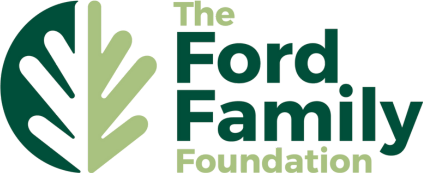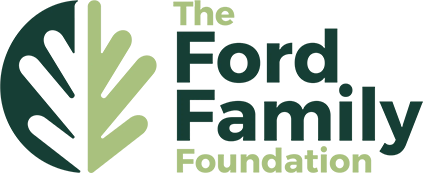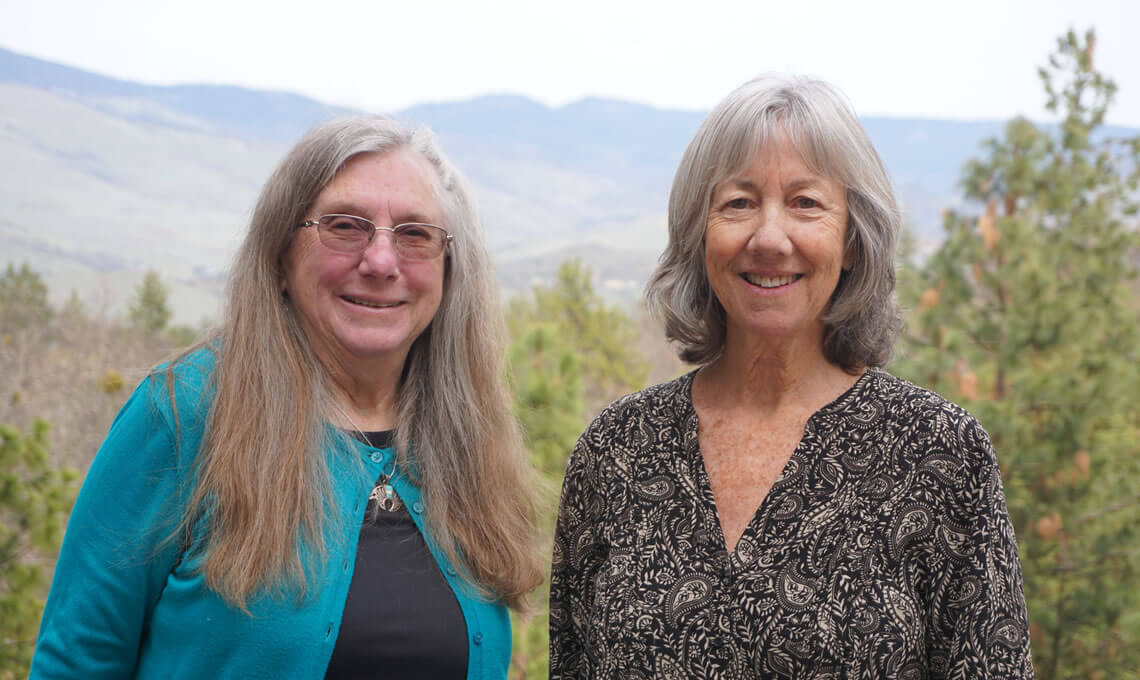Mary Ward and Roi Crouch celebrate and reflect on two decades of work
“The Ford Institute Leadership Program’s vision of community vitality and building capacity has been realized in amazing ways in many communities,” explains Mary Ward from her Southern Oregon home. Ward and longtime colleague Roi Crouch came together recently to reflect on their 18 years of working together on community building. The two have facilitated hundreds of conversations and learning experiences with rural residents and leaders across Oregon and in Siskiyou County, California. Now, they and the staff of the newly renamed Rural Community Building department look back at lessons learned, and look forward to the promising future of the community building movement.
When the Leadership Program began in 2003 as one of The Ford Family Foundation’s flagship programs, it was based on community building principles that remain in place today: Go to where the people are and build on what you have. “What we needed was the collective energy in each community and the wisdom and learning that allowed people to grow into their own capacity — and grow together,” Ward shares.
As they celebrate and reflect, Ward and Crouch rightfully feel pride in the community building movement’s early accomplishments. Between 2003 and 2015, more than 6,000 rural residents participated in leadership development trainings at 88 hubs across the region. The fruits of their work together can be seen as enduring testaments of their collaboration: bike racks and walking paths, downtown revitalization efforts, and nonprofit networks and community connections.
“It was a very organic process for the first couple of years. We had the privilege of trying things out with people in communities and getting their feedback to modify our approach as it made sense,” shares Crouch. “We built on the wisdom already in the communities from people doing the work.”
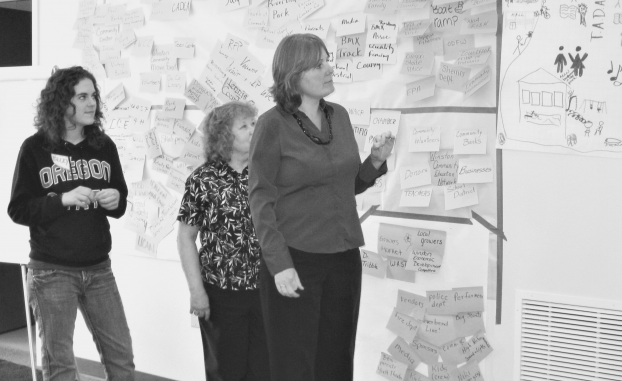
Between 2003 and 2015, more than 6,000 rural residents participated in leadership development trainings at 88 hubs across the region. PHOTO: Roi Crouch
The community building road we’ve traveled
The rural community building movement began to shift in form in 2015 when the statewide community of Leadership Program graduates worked together to create what is now known as the Community Building Approach. With the leadership of Roque Barros, then the director of the Foundation’s department, community builders started to shift from individual- and project-based development to broader community visioning.
Like Crouch’s and Ward’s instructional style, which they describe as “learning by doing,” the Community Building Approach is an adaptable framework for community collaboration. It is both a process and a product. As residents of a town come together to work on a vision for their community’s future, they both improve local conditions and create capacity for an ongoing, virtuous cycle of increasing rural community vitality.
The Community Building Approach gained even more traction in 2016 after three experienced community builders (two of whom were former Leadership Program graduates) were hired as staff of the Foundation – as field coordinators to support their regions. The team has since expanded to include six field coordinators. These Foundation staff members rely heavily on rural community builders like Crouch and Ward, who form a broad network of interconnected rural residents. Whether leading projects like community websites or weaving networks across county and state lines, the knowledge created by rural community builders continues to inform the future of the movement.
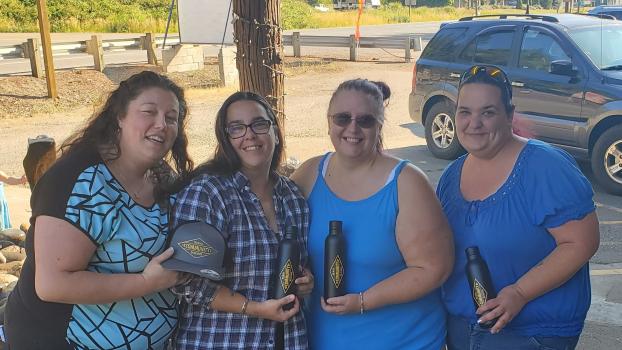
The knowledge created by rural community builders continues to inform the future of the movement. PHOTO: RuralCommunityBuilders.org
What’s on the horizon for community building
As the Foundation rolls out a new strategic framework for supporting deep community building that is focused on improving outcomes for children and their families, community builders continue as essential collaborators in creating the future for rural Oregon and Siskiyou County. “We often say that community building is in the DNA of the Foundation,” says President Anne Kubisch. “We look to community builders, especially our longtime partners, for guidance on how best to support rural organizational, community and economic development capacity.”
“Community building is in the DNA of the Foundation” — President Anne Kubisch
One way this change is reflected is in naming: The Ford Institute for Community Building is now the Rural Community Building department within The Ford Family Foundation. “The name ‘Ford Institute’ made it feel like our department is somehow separate from the Foundation,” explains Max Gimbel, the Rural Community Building department’s director. “In order to help the rural communities we serve create the meaningful impact they — and we — are seeking, the Foundation is breaking down internal silos. Our department’s name change embraces a deeper sense of collaboration and unity. We also wanted the word ‘rural’ in our name!”
Like the Foundation, Ward’s and Crouch’s commitment to rural communities and their people remains unwavering. As they look forward to a more laid-back lifestyle, they plan to continue coaching and mentoring, networking and building community. Travels to visit colleagues and far-flung sites outside of the region await them. “I was so busy going from community to community through my work, I didn’t have time to just visit with someone over lunch,” Ward shares.
And in the wake of the impact the duo has had on our region, especially Southern Oregon, they leave capable, energetic community builders ready to create an inclusive and inspiring future. See RuralCommunityBuilder.org for dozens of examples of rural community builders who take action to make their towns a better place for everyone to live and consider recognizing those leaders where you live.
Learn more about the upcoming shifts in supports and the Foundation’s enduring commitments to rural places, people and opportunity here.
